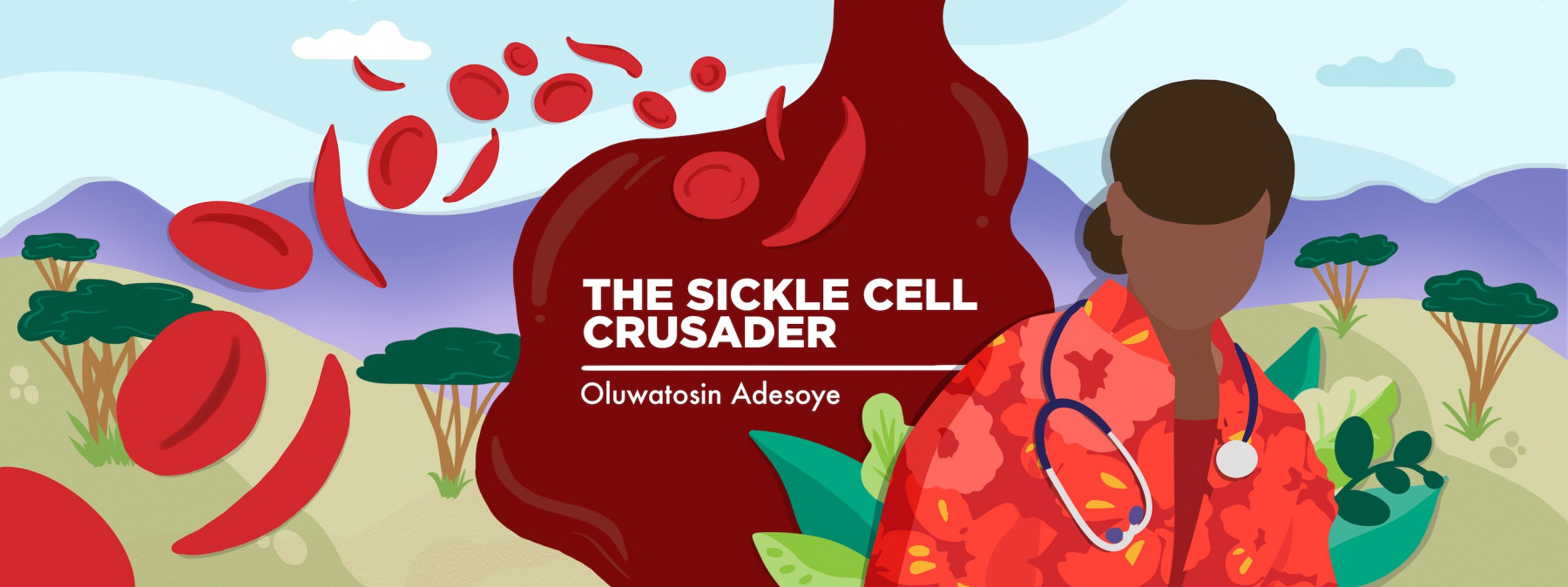How emotions can trigger a sickle cell crisis for me
A columnist must carefully monitor her feelings to avoid a pain crisis
Written by |

It took me a while to realize that intense emotions can lead me to a sickle cell crisis. Most of my health professionals never mentioned it when educating me about crisis triggers. From what I’ve learned as a physician, emotional triggers aren’t researched or documented enough. Hence, the education on them is minimal.
My first memorable experience with emotional triggers was when I was 13 years old and had to represent my school in a state mathematics competition. I’d represented my school in many competitions without hassles, but this event was the first time I had to wait for the results immediately after finishing the tests.
As soon as I heard this, I became anxious and started panicking. Immediately, I felt a sharp pain in my back. I didn’t realize it was associated with my anxiety at first because I’d never had such an experience. The pain was sudden in onset, sharp, intense, and persistent. I took medication, but the pain didn’t respond to any analgesics until I calmed down and stopped being anxious. It was the first time anxiety and panic had triggered a sickle cell crisis for me.
Afterward, I started noticing similar episodes occurring when I felt panic, anxiety, or fear. It occurred even more often when I became a huge fan of tennis, and of Rafael Nadal in particular. Any time Nadal would play against his greatest rivals, Roger Federer (now retired) and Novak Djokovic, I’d experience a crisis. It’s never easy when the biggest tennis stars lock heads, and Nadal is a pro at making fans like me panic.
Whenever I turn on one of Nadal’s matches, I immediately start panicking, and severe pain commences. No analgesic helps until I either stop watching or Nadal begins winning comfortably. Although his matches are some of my favorite things to watch on TV, my sickle cell disease means I watch them while in severe pain.
During my college days, I also noticed that whenever I’m happy and in a good mood, I fall sick less often than when I’m sad. Unfortunately, I also sometimes feel pain if I laugh excessively or get too excited.
My most recent experience with emotional triggers happened a few months ago when I had a dental procedure. Just before it, I became anxious for whatever reason, which kick-started severe back pain. The crisis was so bad that the dentist almost halted the procedure. I didn’t want to postpone it, though, so I pretended I was OK.
Awareness is crucial
Over the years, I’ve learned a lot about how different emotions can trigger sickle cell crises. Examples include anxiety, panic attacks, sudden fear, anger, overexcitement, depression, and excessive laughter. However, it’s important to note that triggers, like many aspects of sickle cell, cannot be generalized. While intense emotions cause crises for some people living with sickle cell disease, others don’t experience this.
Still, it’s good for parents of children with sickle cell, especially those who are too young to express themselves appropriately, to know that emotions can sometimes trigger crises for their kids. For example, if your child always cries after engaging in activities that bring up strong emotions, such as watching horror movies or bungee jumping, it might be because they’re experiencing sickle cell crises as a result.
Knowing how our emotions can determine our health is important for those of us with sickle cell disease. It’s a good idea to be careful about which activities we engage in and to learn to control our reactions to different situations. It’s imperative to monitor our emotions so they don’t affect our health negatively.
Note: Sickle Cell Disease News is strictly a news and information website about the disease. It does not provide medical advice, diagnosis, or treatment. This content is not intended to be a substitute for professional medical advice, diagnosis, or treatment. Always seek the advice of your physician or other qualified health provider with any questions you may have regarding a medical condition. Never disregard professional medical advice or delay in seeking it because of something you have read on this website. The opinions expressed in this column are not those of Sickle Cell Disease News or its parent company, Bionews, and are intended to spark discussion about issues pertaining to sickle cell disease.




Leave a comment
Fill in the required fields to post. Your email address will not be published.